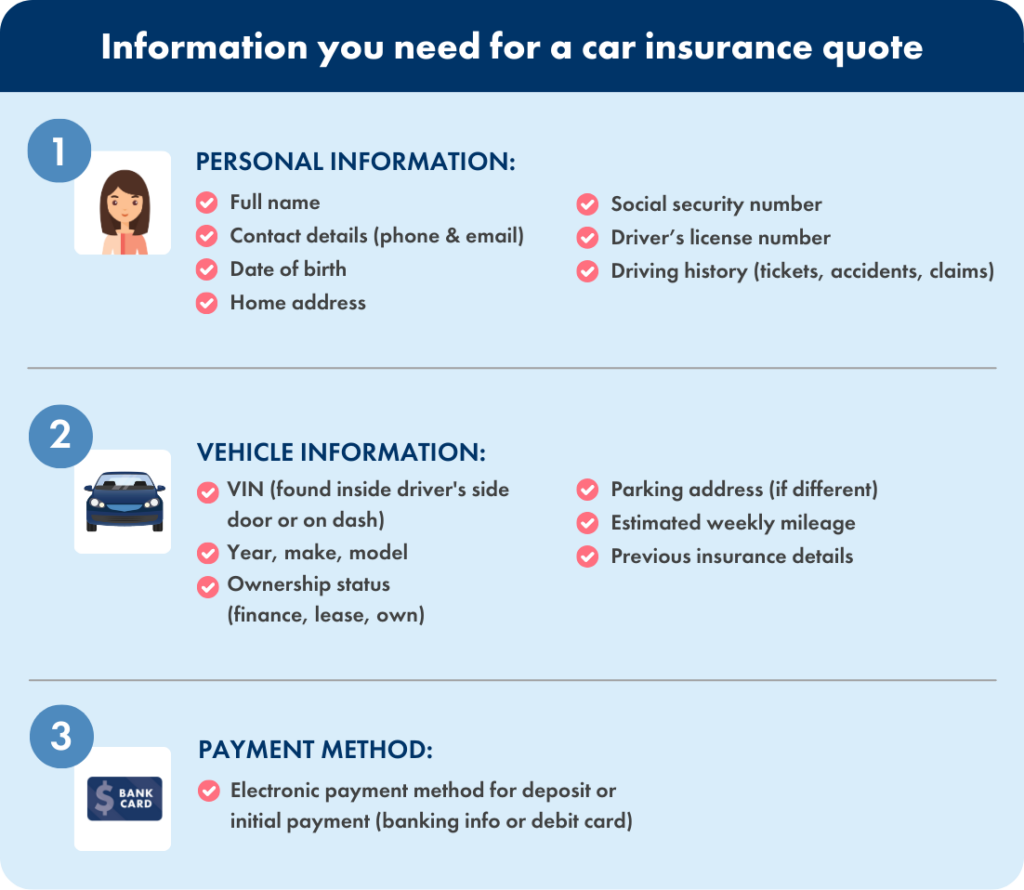Why do less experienced drivers need basic safety skills and decent car insurance coverage before getting behind the wheel? Because new drivers, primarily between 16 and 19 years old, are 3X more likely to be involved in a fatal car accident than drivers over 20.
Here are three reasons to keep reading about the importance of getting good auto insurance for new drivers.
- Without insurance, being involved in an accident — even one with no fatalities — can lead to major financial challenges. Insurance helps cover the costs of car repairs, medical expenses for injuries caused by the accident, and even legal fees if you’re sued by another involved party.
- If you’re at fault, your insurance will cover costs associated with damage to someone else’s property or injuries they’ve suffered. This helps protect everyone involved in the accident, not just the driver and passengers.
- A great driving record and consistent car insurance coverage may lower monthly premiums, while coverage gaps or a record of accidents or violations can increase rates.
Understanding the basic concepts of car insurance
At its core, car insurance is a contract between you and an insurance company that protects you financially in case of accidents, theft, or other unexpected events involving your vehicle. Before we get into the nitty-gritty, here are some top things to keep in mind about understanding car insurance:
Premiums and Deductibles: Your premium is what you pay for coverage, often monthly or annually. Deductibles are what you pay out of pocket before insurance kicks in. Choosing a higher deductible can lower premiums, but you’ll pay more in case of a claim. Higher coverage limits mean higher premiums but offer more financial protection in case of accidents. Learn more about how deductibles work.
Factors Affecting Rates: Several factors can influence the cost of your car insurance, including your age, gender, driving record, location, type of vehicle, and credit history.
State Requirements: Car insurance is legally mandated in most states, and penalties for non-compliance include fines, license suspension, or legal action. For new drivers, you can’t avoid getting car insurance.
Limits and Exclusions: Coverage limits refer to the maximum amount your insurer will pay for a covered claim. Exclusions are specific events or circumstances that are not covered by your policy.
What is the best insurance for first-time car owners?
Car insurance policies consist of various coverages designed to provide financial protection in case of loss or damage to the policyholder’s vehicle or bodily injury due to an accident.
There are several types of car insurance coverage, and depending on the state of residence, certain coverages are mandatory, while others are optional. Here are the major types to be concerned about:
Liability Insurance pays for bodily injury and property damage that you cause to others in an at-fault accident. That can include medical bills and legal fees if you’re sued.
Collision Insurance covers the cost of repairing or replacing your car if you’re involved in a collision, regardless of fault. For less experienced drivers, that can reduce anxiety about driving.
Comprehensive Coverage protects your vehicle from non-collision incidents such as theft, vandalism, fire, or natural disasters.
Personal injury protection (aka PIP) and Medical Payments Coverage (MedPay) are two types of insurance that help pay for medical expenses after an accident. PIP tends to offer more comprehensive coverage, including lost wages, childcare, and funeral expenses, but it carries higher premium costs. MedPay strictly covers medical care and is often more affordable.
Uninsured/Underinsured Motorist Coverage can pay for medical bills, lost wages, and other damages if you’re involved in an accident with a driver who doesn’t have insurance (uninsured) or doesn’t have enough insurance to cover your damages (underinsured).
What information is needed to get car insurance?
Here’s what you’ll need to get a fast price quote for your new car insurance policy.
Vehicle Details: Know the tear, make, model, and mileage of the vehicle.
Vehicle Identification Number (VIN): This unique identifier helps determine the vehicle’s history and insurance rates. It can be found on the title and under the windshield in front of the driver’s side.
Vehicle Ownership Information: This can be found in the title of your car.
Garage Address: Where you park or garage your car when not in use can affect insurance rates based on factors like crime rates and the risk of theft.
Driver Information: Gather the names, birthdates, and driver’s license numbers of all drivers who will be covered by the policy, including primary and occasional users.
Current Policy Details: If you already have a car insurance policy, your new insurer will want to look at your coverage limits, deductibles, and expiration dates.
Driving History: Provide details on any tickets, accidents, or other violations. This helps insurers evaluate your driving record and assess your risk as a driver.
Payment Method: It’s good to have an electronic payment method, like electronic checks or a debit card, to make an initial payment to start coverage.

What determines the price you pay for insurance?
In the US, if you’re without a car, your job prospects can be slim. If public transportation isn’t a viable option, you really need a car to open up your job prospects. But car insurance can be expensive, right?
Because every driver is different, insurers rate the risk they’re taking in insuring someone by looking at a pretty extensive list of common factors. Here are just a few things that can influence what a new driver might pay for car insurance:
You’re New: Since first-time car owners tend to have limited driving experience, insurance companies may view them as higher risk and offer higher premiums.
You’re Under 25: Younger drivers tend to pay higher premiums due to data showing they’re more likely to be in an accident.
You’re Male: While controversial, statistics have shown that young male drivers tend to be involved in more accidents than young female drivers, so they tend to get higher insurance premiums.
You’re Married: Insurance companies typically view married drivers as more responsible and less risky so they often receive lower insurance rates compared to single drivers.
You’ve Chosen a Really Low Deductible: Understanding how deductibles impact premiums can be tricky for first-time car owners, but we can help!
You’re Not Driving A Used Car: Older cars don’t need as much collision or comprehensive insurance, while newer cars may cost more to insure due to higher repair costs and theft risk.
You Live Where You Live: Urban areas often have higher rates due to things like higher traffic density, more accidents, and an increased risk of theft or vandalism.
Your Credit History Isn’t The Best: First-time car owners may have limited or no credit history, which could result in higher premiums.
You Haven’t Looked Into Discounts: First-time car owners might not know about discounts for bundling policies, having a clean driving record, or completing driver education courses.
Take a look at this blog to learn more about the factors that affect the price you pay for insurance.
How to find the best and cheapest car insurance for new drivers
Comparing insurance quotes from different companies is a good idea for a few reasons.
- It can save you money because rates vary between companies.
- You can customize your policy to fit your needs by looking at different insurers.
- You can choose a company known for good customer service and claims handling.
- Shopping around helps you find discounts to lower your premiums.
- Comparing quotes lets you see different coverage options and find the best deal for what you need.
But it takes a lot of time to Google every insurance company, fill out their online forms, wait to receive a quote, and then compare each one to make sure you’re getting the best deal. Instead, Guided Solutions can do all that legwork for you.
We feel that finding good car insurance for new drivers shouldn’t be a headache. That’s why we’ve made it easy and hassle-free. Simply provide us with some basic details about yourself and your vehicle, and we’ll take care of the rest. Our team will compare quotes from top-rated insurers, presenting you with a curated selection of options tailored to your needs and budget.
From there, you can confidently choose the policy that best fits your requirements, whether you’re looking for cheap car insurance for first-time drivers, affordable comprehensive coverage, or specific add-ons. With our streamlined process, you can secure your ideal coverage in minutes, giving you peace of mind on the road ahead.
Are there car insurance discounts for new drivers?
When you work with Guided Solutions, we’ll also consider discounts that you may not have known about. Not all insurers offer these discounts, but if they do, new drivers can take advantage of them to reduce their insurance premiums while still maintaining the coverage they need.
Good Student Discount: Young drivers who are students with a GPA of 3.0 or higher may qualify for this discount.
Driver Training Discount: Completing a defensive driving course tends to reduce the risk of accidents and claims and qualify new drivers for lower premiums.
Multi-Policy Discount: Taking car insurance and bundling it with other insurance policies under the same insurer – like homeowners or renters insurance — can often get you decent discounts.
Low Mileage Discount: Insurance companies offer this discount to people who drive fewer miles each year because they are less likely to have accidents.
Which car insurance is the best for first-time drivers and new car owners?
There are many aspects to consider when shopping for car insurance as a new driver. Some of our partner companies — Progressive, Travelers, Nationwide, Branch, Dairyland, Safeco, National General, and Bristol West — are known for helping first-time car drivers.
These partners offer affordable rates, custom coverage options, and reliable customer service. And since they understand the challenges new drivers face, they make it easy for new drivers to get the insurance they need at a price they can afford.
Trust online reviews? Consumer Reports and Trustpilot compile customer reviews and satisfaction ratings for the insurers listed above as well as other providers. Visit these websites and search for reviews specific to each insurer. In addition, NerdWallet’s Auto Insurance Reviews for 2024 was released earlier this year, and it’s definitely worth a read.
Ready to put your research to the test?
As an insurance broker, Guided Solutions specializes in guiding consumers through this process, making it easier to evaluate insurance providers and choose the best policy for their particular situation. And if you’re in the market for a new car, take a look at our article on which cars have the best insurance rates.
Remember, as you get more experience on the road, always drive responsibly, get regular maintenance on your car, and make sure you have the right insurance coverage.
So, whether you’re a new car owner, a new driver with a used car, or you want to switch insurance providers, you can start today by calling Guided Solutions at (833) 791-4719. Or get a fast online quote in minutes.









